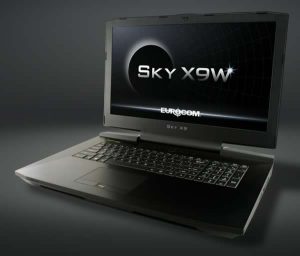As most users become increasingly demanding of their laptops, it is vital to make the right choice when it comes to purchasing a new laptop. An over-the-top laptop can cost you significant extra budget for features you will not use. Similarly, if you end up with a laptop that is not fit for purpose and too slow for your requirements, you will quickly become frustrated as it whirrs and struggles to process what you need it to efficiently.

The best thing about the modern laptop market is that you can choose almost any size, weight, and finish according to your preference. Laptops are known for their portability and lightweight finish, whereas notebooks tend to be bulkier for heavier processing demands.
Deciding on your buying criteria
It is easy to be confused or bogged down by the number of laptops for sale to choose from. The best approach is to flip the challenge on its head. Do this by considering how you use your laptop, and the applications you run most commonly.
Many standard tasks are actually reasonably light in terms of the demands they place on laptops. In other words, you are a pretty standard user if you just plan to use your device to work online, manage your online banking, use spreadsheets and word processing programs, look at social networks, and play the occasional online game.
The lowest-end laptops are more than capable of running these kinds of activities. You will only need to think about going up into the mid-range options if you plan to play games, watch HD movies, or run graphics-heavy programs such as video editing software.
Pimp your PC
Even if you opt for the lightest weight or simplest device, you can easily pimp it up by adding some peripherals.
To do this, simply check if your laptop has the right number of ports to run what you need it to. Even if it does not, you can simply use a multi-port adapter to give you 4-5 ports to run at the same time.
If you do a little homework and think carefully about your criteria before you start looking, you are much more likely to come out with the laptop you need. Failure to do so can mean you get wowed by what you think is a great bargain. But this could be for the wrong type of device that is too heavy or not powerful enough for what you really need.
What operating system do you prefer?
Although most laptops can run the operating system of your choice, this is not always the case. The most obvious one is that you will need an Apple device to run macOS, whereas Chromebooks run solely on the Chrome OS.
Most other makes of laptops are quite flexible in terms of the OS they can run, whether it is Windows or Linux. So take this into account when making your choice.
A laptop is a laptop, right?
Wrong. There are actually all kinds of configurations available to choose from. You can even opt for a 2-in-1 device to give you laptop and tablet functionality all in one.
With this, you have the flexibility to work regularly with a keyboard on a desk. You can then detach the screen from the keyboard to give you a tablet environment if you need to work on the go or in a cramped space.
Think about your screen size too. A larger screen is almost certainly appealing for users that leave their laptop on their desk for the vast majority of the time. But carrying a bulky device with a big screen can seem much less appealing if you plan to carry it around with you with any kind of regularity.
Making your selection
With these considerations in mind, you can approach a search with a lot more confidence. Decide your budget, and search within those parameters.
As you choose, look into the detail of what warranty and protection each laptop come with. You will also want some kind of security protection from a firewall.
Finally, consider looking at some user reviews for the devices you have on your shortlist. Other users will let you know any flaws in a device before you take the plunge!





